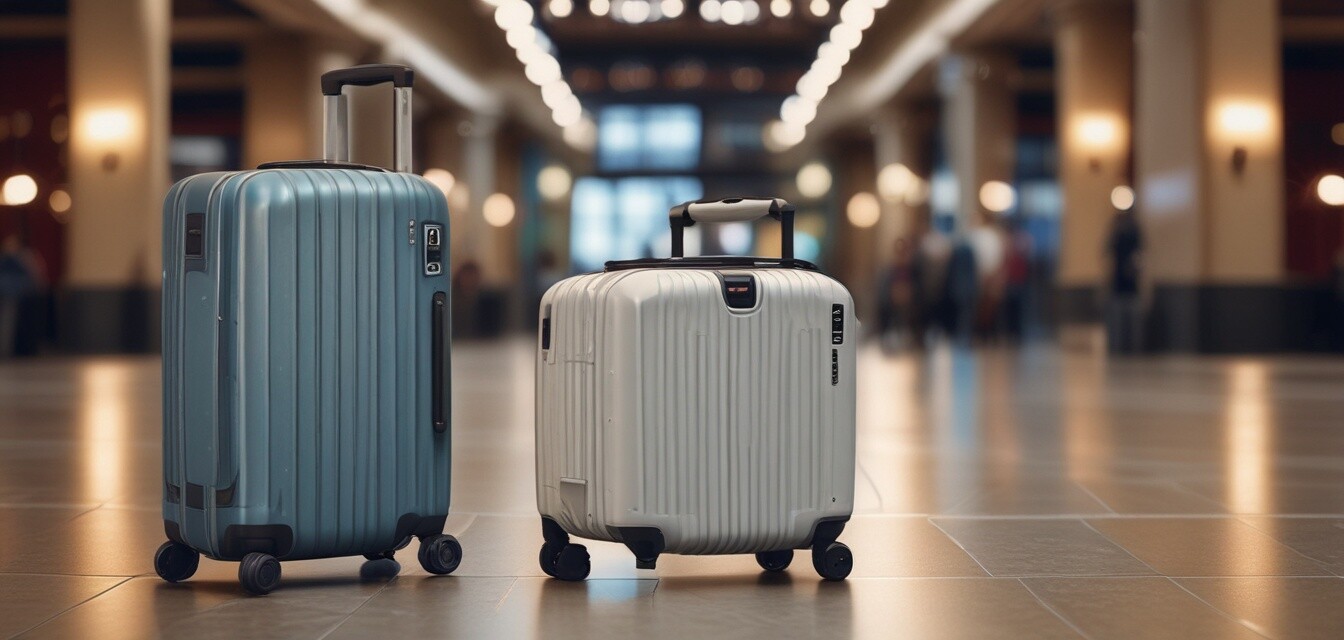
Smart Luggage vs. Traditional Luggage: A 2025 Comparison
Key Takeaways
- Smart luggage offers GPS tracking for enhanced safety.
- Traditional luggage remains reliable and often more affordable.
- Battery life and weight are critical considerations for smart luggage.
- Compatibility with apps enhances the usability of smart luggage.
- In 2025, travelers must weigh the convenience of technology against practicality.
Traveling has evolved significantly in recent years, especially with the introduction of smart luggage equipped with GPS tracking technology. In this article, we will dive deep into the comparison between smart luggage and traditional luggage as we navigate the landscapes of 2025. Whether you're a dedicated traveler or an occasional adventurer, understanding these differences can help you make an informed decision about which type of luggage suits your needs.
What is Smart Luggage?
Smart luggage refers to travel bags equipped with advanced technology, including GPS tracking, integrated charging ports, and smart locks. These innovations enable travelers to not only keep track of their bags but also simplify their travel experience.
What is Traditional Luggage?
Traditional luggage, on the other hand, encompasses standard travel bags without any electronic features. These bags focus on providing reliable storage, protection for your belongings, and a classic travel aesthetic. They are often simpler in design and more budget-friendly.
Comparative Features
| Feature | Smart Luggage | Traditional Luggage |
|---|---|---|
| GPS Tracking | Yes | No |
| Integrated Charging Port | Yes | No |
| Weight | Generally heavier due to technology | Typically lighter |
| Price | Higher due to technology | More affordable |
| Durability | Varies by brand | Often robust |
| Battery Life | Needs charging | No battery needed |
Pros and Cons of Smart Luggage
Pros
- Convenient GPS tracking for peace of mind.
- Integrated charging ports allow for mobile device charging.
- Smart features enhance usability, such as app integration.
Cons
- Higher cost compared to traditional luggage.
- Heavier, which may affect airline weight limits.
- Battery issues can render features unusable.
Pros and Cons of Traditional Luggage
Pros
- More affordable and accessible.
- Lighter and often more durable.
- No requirement for batter charging or app compatibility.
Cons
- No smart features, making tracking difficult.
- Aesthetics may seem outdated compared to modern designs.
Which One Should You Choose?
The choice between smart luggage and traditional luggage ultimately depends on your travel style and preferences. Frequent travelers may benefit from the security and convenience of GPS tracking, while occasional travelers might find traditional luggage more suitable due to its affordability and simplicity.
Additional Considerations
Beyond the basic features, consider the following when choosing your luggage:
- Size and Capacity: Ensure you select luggage that meets your travel needs and airline restrictions. Explore options for carry-on luggage for shorter trips.
- Weight Limitations: Pay attention to the weight of the luggage itself, especially for smart luggage.
- Brand Reliability: Research customer reviews for durability and warranty policies.
- App Compatibility: Ensure that the required app for smart luggage is compatible with your phone.
Batteries and Durability
Battery life is a fundamental consideration for smart luggage. Make sure to consider how long you can expect the luggage to last without a charge and whether it can withstand the rigors of travel. Traditional luggage does not face such issues.
Conclusion
In sum, both smart luggage and traditional luggage present unique advantages and disadvantages, playing specific roles based on different traveler needs. As you assess the latest options in 2025, it’s crucial to balance technology, usability, and practicality. Understanding what features are important to you will make your travel experience seamless and efficient.
For more insights into smart luggage options, check out our Buying Guides and make informed choices that enhance your travels.